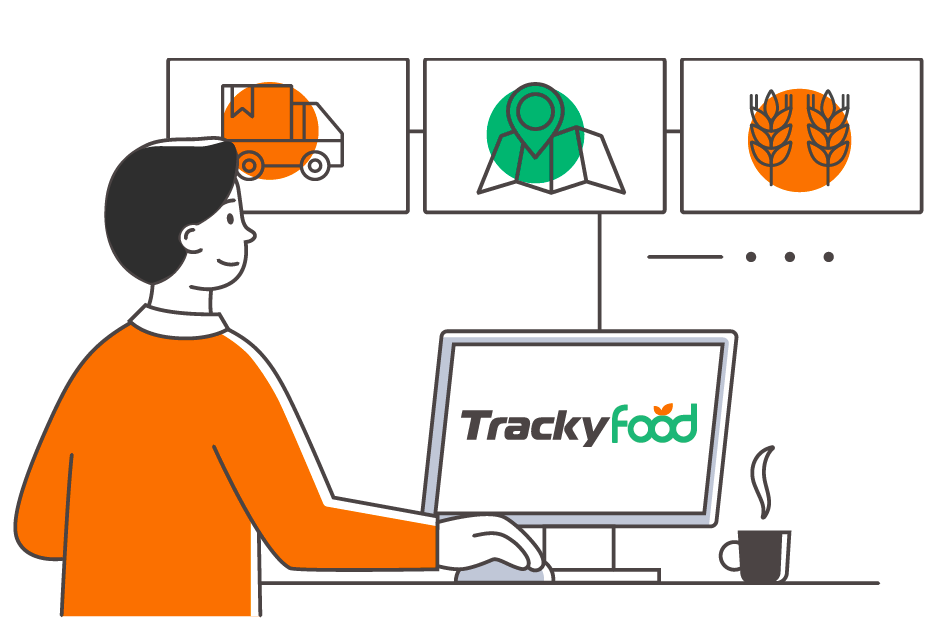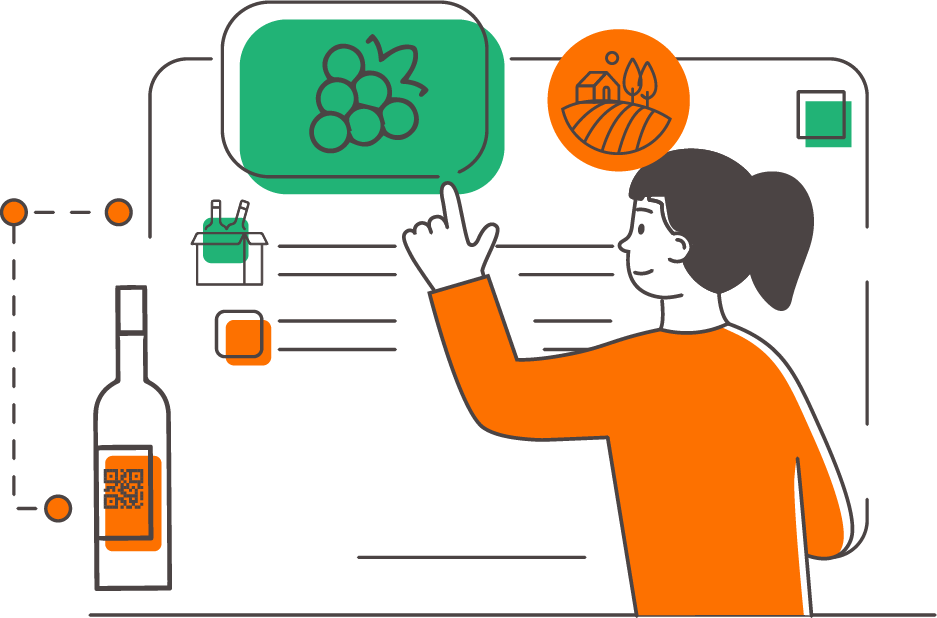
The digital traceability of organic products
Organic foods represent a growing sector of the food industry, known for sustainable production and environmental conservation. They are grown or produced following strict standards that prohibit the use of synthetic chemical pesticides, artificial fertilizers, genetically modified organisms, and antibiotics for animal farming. Additionally, organic agriculture promotes ecosystem-friendly farming practices such as crop rotation and sustainable soil management. And organic farming in Italy continues to grow.
Organic data in Italy
Last September, Nomisma, during the presentation of the SANA Observatory, promoted by BolognaFiere in collaboration with FederBio, AssoBio, Sinab, Ismea, and ICE Agency, presented the latest estimates of the domestic market and the results of a survey on Italian consumers.
In 2022, organic food sales in the domestic market exceeded 5 billion euros. Hypermarkets and supermarkets are the channels that account for the majority of organic sales, surpassing 1.5 billion euros in July 2023.
In Italy, organic cultivation represents 19% of the total area, compared to a European average of 12%, moving closer to the targets set by the Farm to Fork Strategy for 2030. Consumers of organic products are aware of the choices they are making: 89% of the population aged between 18 and 65 has consciously purchased at least one organic food product in the last year, choosing based on the product’s origin, with a preference for products made in Italy, locally sourced, and with PDO or PGI labels. Those who buy organic products do so because they consider them safer for their health and more sustainable.
To ensure that consumer trust in organic products is well-placed, there is legislation that requires producers to obtain specific certifications.
Certifications ensuring organic
These certifications are issued by third-party organizations, independent entities known as organic certification bodies, which verify compliance with organic standards. Regulations vary from country to country but often follow international guidelines established by the International Federation of Organic Agriculture Movements (IFOAM).
Organic certifications require careful documentation demonstrating compliance with organic standards at every stage of production, from planting or breeding to distribution. Inspectors from certification bodies conduct periodic visits to producers to ensure that standards are maintained and that prohibited chemicals or methods are not used.
Organic certifications provide consumers with the assurance that organic foods are authentic and meet established standards. The “organic” label on food products is a reliable indicator of sustainable production and limited use of harmful chemicals.
The inseparable relationship between organic and traceability
It goes without saying that food traceability is a crucial aspect when it comes to organic foods. If the typical consumer chooses organic foods based on their origin, they must be able to verify the source and quality of the product they are choosing. In addition, traceability in organic foods is essential to ensure compliance with the information on the label, allowing consumers to verify its accuracy and distinguish it from other products on the shelf.
Food traceability of organic products provides a guarantee not only for consumers but also for producers.
In fact, despite a continuous increase in the number of organic food consumers, the main barrier to purchase remains the higher cost compared to conventional foods. In this sense, traceability information can be very useful for producers to demonstrate the value of their work, where more demanding production practices translate into higher costs.
INNOVABIO Project: When analytical methods support traceability
In support of the value of traceability in organic products, the INNOVABIO project was launched in 2018, coordinated by CREA.
This project aimed to develop an analysis system capable of objectively distinguishing and tracing conventional products, obtained with synthetic fertilizers, from organic products, produced with approved organic fertilizers and soil fertility management techniques, based on chemical data and parameters.
Within the project, representative crops of Italian horticulture were studied: greenhouse cherry tomatoes, fennel, and cauliflower. CREA researchers developed an integrated analysis system based on the identification of markers to distinguish whether certified organic productions were obtained using organic fertilizers allowed by the organic method or synthetic chemical fertilizers. The experimentation demonstrated that different fertilization practices between organic and conventional methods influence the chemical composition of certain elements in fruits and vegetables, particularly nitrogen, which proved to be an effective marker for discriminating the cultivation method.
Agriculture 4.0: Making traceability digital
Digital technologies in organic agriculture, among many other things they can enable, also facilitate traceability operations by streamlining certification body inspections for proper technique application. Furthermore, as stated by the SANA Observatory of Nomisma, blockchain-based supply chain traceability is one of the factors that can contribute to the success of organic products by providing additional assurance to consumers. Indeed, several organic food producers have adopted notarized traceability solutions on blockchain for their products.
Organics choosing blockchain traceability
Regarding the retail sector, Coop and Carrefour can be mentioned.
In Italy, Carrefour was the pioneer in applying blockchain to traceability of its products. Digital traceability was announced in 2018 and initially involved the chicken supply chain, expanded in 2019 to include citrus fruits, and finally, in 2022, Carrefour announced that it would apply blockchain technology to Carrefour Bio branded products.
In 2019, Coop announced the launch of digital traceability based on blockchain for its ViviVerde organic eggs, allowing consumers to view the entire lifecycle of the organic eggs. By scanning the QR code on the packaging, consumers can verify the farm of origin, packaging location and date, and freshness check, which certifies that no more than 10 days have passed since the date of deposition.
This data is valuable both for consumers, who know they have purchased a quality product, and for the company, which maintains centralized and traceable control of the specific supply chain. However the application of blockchain to traceability is not limited to large retailers; in fact, an increasing number of organic companies are adopting this technology.
An example is Bioitalia, a Campanian company that has chosen organic production since 1994 and has decided to introduce blockchain-based traceability into all its supply chains this year to provide greater transparency to its customers.
Also, Alce Nero, a major organic company in Emilia, announced in 2022 the launch of a blockchain-based traceability experiment involving a batch of extra virgin organic olive oil PDO Terra di Bari Bitonto.
Technology applied to organics that meets everyone's needs
Like the mentioned companies, many organic entities are embracing blockchain technology to trace their products.
In part, this trend can also be seen as a need for producers to communicate with consumers.
According to Nomisma, in a recent report, it is highlighted that 60% of consumers would like more detailed information about the characteristics, production methods, and nutritional values of organic foods. They also want to know about the distinctiveness of organic compared to conventional products and its environmental, social, and economic sustainability. When these consumer needs are combined with the need for producers to communicate the value of what they are selling, it becomes clear why there is a necessary openness to technologies that can help achieve these objectives.
More news
Read the news we have selected for you. Lots of curiosities and information on the world of food.
The 5 Myths About Food Traceability
Food traceability has become an essential component of the mod..








